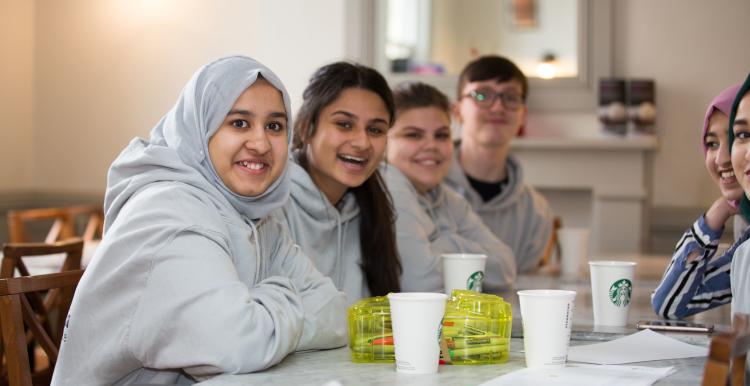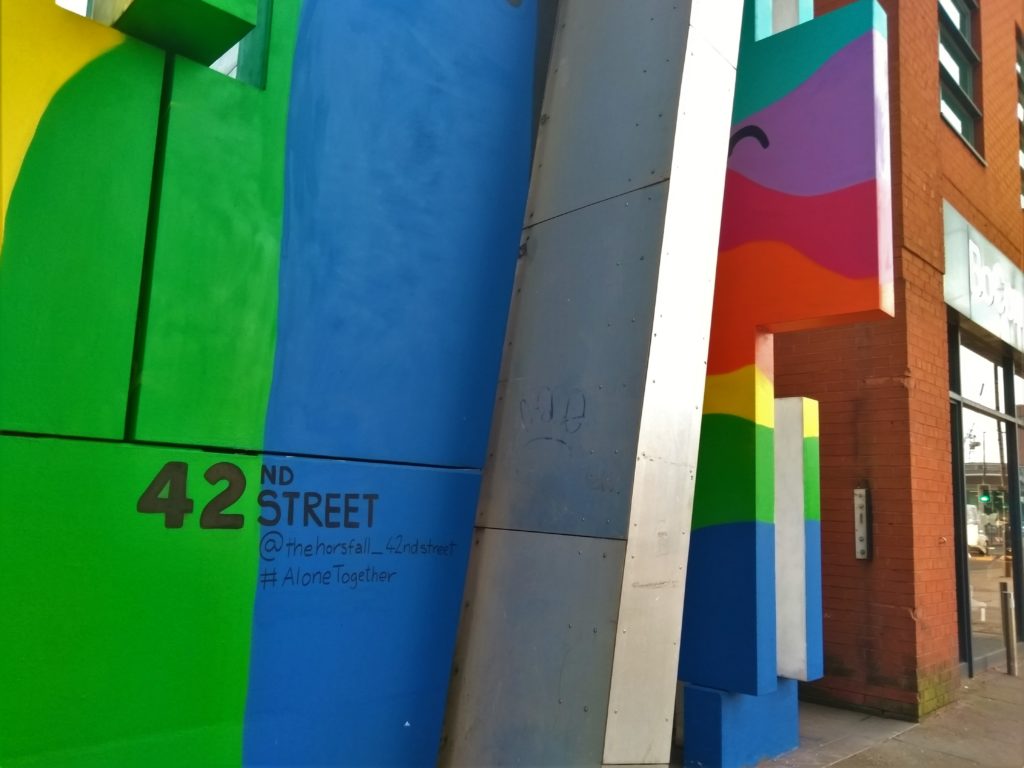Services for Children and Young People in Manchester

We are making it part of our mission to speak to local health and care providers about the services they run. We want to make it easier to understand what’s available to young people in Manchester, what these services do, and what it’s like to use them.
This is an ongoing project and will expand as we get to do more and more.
If there’s a service you have used or would like to know more about you can ask us to cover it by emailing info@healthwatchmanchester.co.uk.
Mental Health Support
There are numerous mental health services providing support and raising awareness. If you’re looking for counselling services for young people in Manchester, you might find services targeted towards specific groups of people according to age, sexuality, ethnicity, faith, etc, or open to anyone, but all use methods like campaigns, activities and appointments.
42nd Street Online Counselling Services
Covid update: Since the Coronavirus Lockdown 42nd Street has moved its group work online as well, including creative spaces and an open group called Click & Connect on Fridays. For more information about what groups are on offer online you can e-mail theteam@42ndstreet.org.uk. 42nd Street are also regularly updating their online offer to make it available as widely as possible across GM. Regular updates around this can be found at https://onlinesupport.42ndstreet.org.uk
We were lucky enough to interview Scott and Tori, members of staff at 42nd Street, who gave us an insight into their service. This conversation took place before the Coronavirus lockdown.
42nd Street is a charity offering a mental health support service for young people in Greater Manchester, staffed by caring and motivated individuals. Scott described how it combines three things that young people benefit from – therapy, youth work and social action. Their goal is to offer a helping hand to any 13-25 year olds who face mental health issues. This could be exam stress, anxiety, depression, or simply just somebody to talk to. No diagnosis is needed, so a young person doesn’t have to go through their doctor to access the service, though a medical or care worker can make the referral for you.
Support is offered through face to face appointments and group sessions, or via an online chat service if preferred by the young person. There are also occasional events such as Digital Pizza, where people played with technology and took part in workshops while eating pizza!
There is a variety of weekly group sessions – Q42 (the LGBT group), Creative Drop-in, Care Leavers, and Peer Ambassadors who have travelled to London and advocated to those in power.
Typically, the young person will receive around 12 face to face appointments, with a review after 6 and 12 sessions. At the moment, there are 2 different forms of online chat. Firstly, text chat where the young person agrees a time with the worker, and has a 50-minute chat, similar to instant messaging. Secondly, weekly message where the worker sends a longer message at the same time each week, and the young person can send as many messages as they want, receiving a response at the same time the next week. There are features in the online chats such as pictures, videos and the ability to send Youtube links. You can always log back in and see the conversation again.

Support is offered through face to face appointments and group sessions, or via an online chat service if preferred by the young person. There are also occasional events such as Digital Pizza, where people played with technology and took part in workshops while eating pizza!
There is a variety of weekly group sessions – Q42 (the LGBT group), Creative Drop-in, Care Leavers, and Peer Ambassadors who have travelled to London and advocated to those in power.
Typically, the young person will receive around 12 face to face appointments, with a review after 6 and 12 sessions. At the moment, there are 2 different forms of online chat. Firstly, text chat where the young person agrees a time with the worker, and has a 50-minute chat, similar to instant messaging. Secondly, weekly message where the worker sends a longer message at the same time each week, and the young person can send as many messages as they want, receiving a response at the same time the next week. There are features in the online chats such as pictures, videos and the ability to send Youtube links. You can always log back in and see the conversation again.
If a young person ever wants to transfer to the face to face appointments, they can speak with their online worker about this and arrange a referral. However, the waiting list is long so 42nd Street have made sure that online chat and group sessions are effective services – Tori stated “We want the online service to be a service in its own right, not just a place holder for face to face support.” When the young person is finished with support, 42nd Street are still always there for them. They can contact the duty team and receive advice over call, or they can get re-referred if they wish.
At the moment, 42nd Street is looking to expand their service to all young people in Greater Manchester. Through the Association of Colleges they are able to assist lots of young people, regardless of their postcode. Anyone enrolled at these partner colleges has instant access to these services. These colleges are:
- Accrington
- Aquinas
- Bury
- City Skills
- Eccles
- Pendleton
- Stockport
- Tameside
- Worsley
- Xaverian
42nd Street are motivated to provide support for all young people so any colleges who wish to partner up with them are welcome to get in touch. Exam stress is a big thing that 42nd Street are focused on at the moment so they are hoping to expand their services to all 15 to 18 year olds taking GCSE’s or A-Levels.
This service is for all kinds of young people, regardless of how they identify themselves – a large percentage of the users of the service identify as LGBT. Inclusivity is key, so they aim to reach out to more ethnic minorities, disabled people, and young carers, just to name a few examples.
Thank you to Scott and Tori at 42nd Street/The Horsfall for speaking with us, Youthwatch Manchester volunteer Denise for interviewing them and writing this page, and Healthwatch Manchester volunteer Rossella for helping with the interview.
The NHS – Child and Adolescent Mental Health Service (CAMHS)
www.mft.nhs.uk/rmch/services/camhs/
Manchester Mind
www.manchestermind.org/our-services/young-people/cyp/
Kooth
Self Help Services
www.selfhelpservices.org.uk/referrals/manchester-salford-young-persons-etherapy-service/
Where else can I find mental health support for young people in Manchester?
- Schools, colleges, and universities
- Specialist charities that support people with particular conditions or situations, and their carers
- Some churches and community groups.


